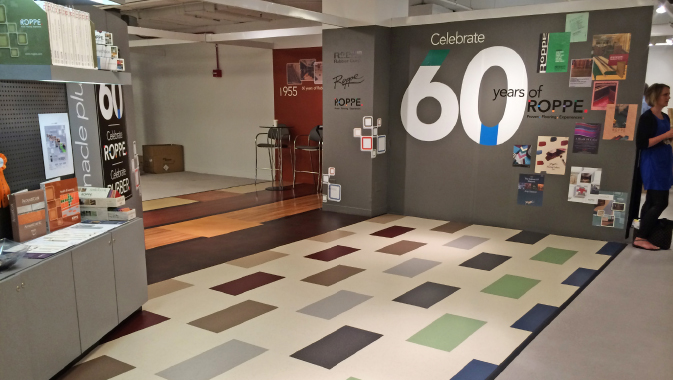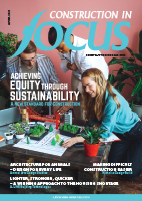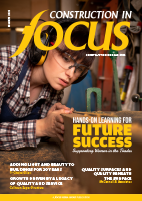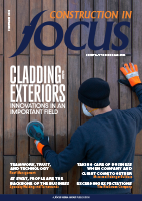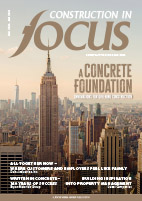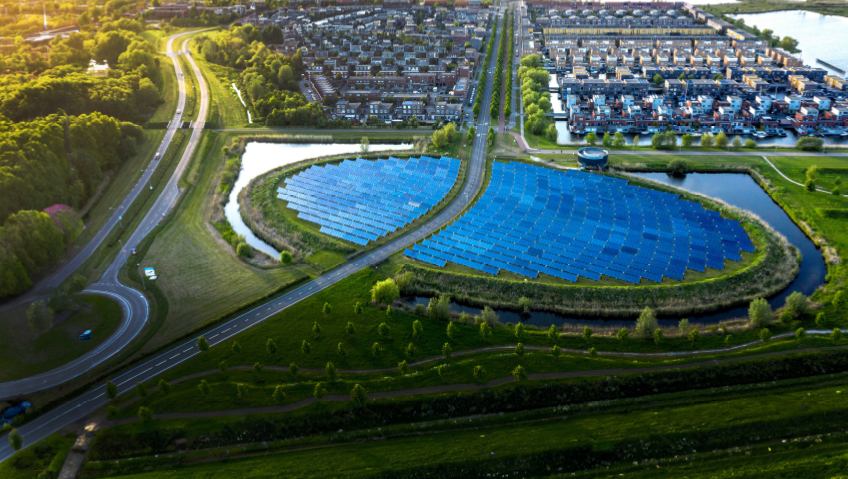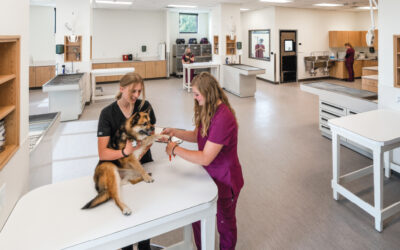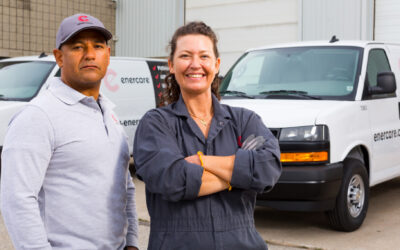If you have heard of Fostoria, Ohio, likely you know if for the numerous glass manufacturers that located here because of the enormous natural gas reserves discovered in the mid-1800s. Or, maybe you are a railroad fan and have traveled to this small northwest Ohio town located 40 miles south of Toledo and 90 miles north of Columbus to visit the Fostoria Iron Triangle Rail Park, which commemorates Fostoria’s prominence in rail car history; Fostoria was once home to five major rail companies.
Access to plentiful, free natural gas and a rapidly developing transportation infrastructure contributed to Fostoria’s dynamic economic viability in the late 19th century. However, as is common to anything that relies too heavily on too few resources, Fostoria experienced as rapid a descent as it did its climb when the natural gas reserves began drying up.
However, one natural resource that has been overlooked by just about everyone in a 100-mile radius except Don Miller, is the people of Fostoria. Established in 1955 by Thony Roppe, Roppe Holding Company has been owned by Miller since Roppe’s passing in 1972. One of Miller’s most common refrains is, “We just made up our minds to do it, and we did.”
Today, as Roppe Holding Company (Roppe) nears its 65th anniversary, it takes that same just-do-it mindset to the business of commercial flooring, continuing to grow in both workforce and revenue on a steady, disciplined trajectory, resulting in Roppe being recognized as one of America’s best-known and most respected suppliers of rubber and vinyl flooring products and accessories for commercial spaces in healthcare, hospitality, education and corporate.
We recently discussed Roppe’s success with Ann Dougherty, General Manager of Sustainability.
One of Dougherty’s first realizations about Roppe was just how committed the Fostoria, Ohio-based company already was to doing the right thing, which is contributing to making the world a better place.
“It’s a completely sustainable company because of the way we treat people,” says Dougherty, a professional engineer. “That’s the way this company is run. Customers and employees, distributors and neighbors really matter, and you’re going to do your best for each other.”
Dougherty has had a long career involving environmental consultancy to the cement industry in the United States and Canada, coordinating air emission research for industry air standards, and managing environmental engineering projects including oil and chemical spill clean-up.
“Sustainability is where social justice, philanthropy, and environmental all come together,” she says, “envisioning a future where we are all using less material, using things more efficiently with less energy and working with more nature-based regenerative processes. This is the future, and it has been an arc of technology advancement since people started thinking this way 50 years ago.”
At Roppe Corporation, actively putting health and safety first has created a habit of wellness. Roppe is a long-time member of organizations such as the U.S. Green Building Council and the Sustainable Purchasing Leadership Council. It is also proudly allied with the National Association of Floor Covering Distributors (NAFCD), the World Floor Covering Association (WFCA), the National Association of Floor Covering Distributors (NAFCD), the National Safety Council, and many other leading industry organizations that promote environmental responsibility, quality, and safety.
The company is dedicated to being part of the solution in sustainability, from the recycled materials used in products to using biological-based products, taking back old rubber, and a great deal more. It is making ongoing product improvements that benefit customers and the environment, intending to see a twenty percent reduction in greenhouse gases, a twenty percent reduction in energy intensity, a twenty percent reduction in water use and a twenty-five percent reduction in waste being sent to landfill by 2025.
This great believer in sustainability has made its environmental and health product declarations covering rubber tile, rubber wall base, luxury vinyl tile (LVT), and other products available on its website.
Another way in which the company demonstrates its leadership is through its Impact program, a successful producer-extended responsibility program. Roppe diverts used rubber product from schools, healthcare facilities, offices, and other locations that would otherwise end up in landfills when it had reached the end of its lifespan. Impact instead facilitates the take-back of old Roppe rubber floor and wall base products removed and taken back for recycling and repurposing.
“As long as you are putting in Roppe rubber, we take your old rubber back,” says Dougherty of the Impact program, which takes rubber only, not rubber and vinyl blends. Once returned, old rubber products are sorted, shredded into pellets and made into multi-colored, high-quality rubber used in landscaping and playground mulch applications.
In some instances, returned Roppe rubber products were installed thirty or more years ago. At one point, Roppe was the leading manufacturer of rubber wall products, accounting for over seventy percent of rubber sold in the United States.
And Roppe continues to manufacture high-quality, durable, and attractive products that are better for the environment, such as Tuflex Spartus Multipurpose Sports Flooring, which has been on the market for about a decade. Most sports flooring is made with crumb rubber, which uses recycled tires.
New Tuflex® is a technological advancement due largely to formulation enhancements that removed crumb rubber and red list chemicals of concern. Tires produced in foreign countries use lower-cost aromatic oils which have benzene in them. Benzene is on Prop65 and known to cause lymphoma and leukemia, among other health issues. Most crumb rubber products cannot pass FloorScore testing. Crumb rubber is sourced from recycled tires and may contain lead and cadmium, whereas Tuflex® is crumb rubber-free.
This is a popular product for sports floors and available in many colors. It is also free of chemicals on the ‘Red List,’ meaning it does not contain any chemicals contained in the environmental non-governmental organization International Living Future Institute’s Living Building Challenge list.
The guidelines of the International Living Future Institute are strict, even prohibiting contractors working on job sites from using disposable, Styrofoam coffee cups because some components are difficult to recycle or cannot be recycled. “All of our rubber is without any of the Red List compounds in it, and there are twenty-two categories of compounds on the Red List,” states Dougherty. “This includes heavy metals and volatiles.”
Tuflex contains more than twenty-five percent recycled content and biological-based (plant) content instead of petroleum-based, and will soon be certified as such. “People are putting it in pharmacies, entryways, and sports facilities, and it is soft to walk on.”
Roppe Corporation is also behind FlashCove, a unique and durable edging product. Puncture-proof reinforced bases are widely used in hospitals and other high-traffic areas. FlashCove also addresses construction labor shortages across North America as it is prefabricated, making it easier to install in the field. The product ensures tight corners, making it easier to clean.
“You get this beautiful clean curve where the wall meets the floor,” says Dougherty. “If you have a construction labor shortage or need a good, easy-to-clean product for a hospital environment, it’s a fantastic product. With all Roppe products, the idea is, you want to solve a problem and look great doing it – that’s the whole point.”
Another outstanding sustainable product from Roppe is Envire Rubber Sheet and Tile. Like Tuflex, Envire is durable, attractive, and free of Red List chemicals, phthalates, polyvinyl chloride (PVC), and halogens. It has been engineered especially for use in high-traffic areas in shopping malls, transportation terminals, lobbies, and classrooms. Envire Rubber Sheet is 100 perecent recyclable through the company’s Impact recycling program. “Where we can truly bring value to the customer with Envire sheet rubber is with the 6’ wide product. Fewer seams means there are fewer places for microorganisms to gather and cause health risks. It also means faster installation using fewer materials.”
Last October Roppe purchased a 500,000-square-foot facility, adjacent to the company’s existing building in Fostoria. “Acquiring this facility is part of our long-term business strategy to be the leading provider of domestically manufactured high-quality resilient flooring products and accessories,” stated Roppe Holding Company Vice President of Sales and Marketing Bart Rogers, in a news release. “We fully expect this investment to provide additional support to our distributor, national account and retail partners being challenged to meet the exploding commercial demand for design-driven products. We will be uniquely positioned to avoid the production constraints and pricing uncertainty non-U.S. flooring manufacturers are facing today.”
Dougherty is excited about the acquisition for Roppe, its approximate five hundred employees, and the local community.
This is a proudly family-owned enterprise dedicated to doing things right – right for each other, for the shared environment, and, more specifically, for Fostoria, which, with Roppe’s continued success, is keeping many of those rail cars filled and steaming ahead toward a promising future for northwest Ohio and the world. With numerous long-term relationships with distributors, Roppe believes in balancing ‘Made-in-the-U.S.A.’ quality with competitive pricing and personal customer service. The company is an American success story over six decades after it was founded and welcomes the future.
“You’re going to see some exciting things and products,” says Dougherty, “and I am very excited about what we are doing. I’ve been working at sustainability and environmental engineering for more than thirty years, and I believe in American business and American industry. I want Fostoria, Ohio to be a thriving place with more businesses, so I hope there are more flooring or interior-related companies that would think about starting up something in Fostoria,” she says.
“Networks are very important in business and in life, and Roppe would love to have more like-minded companies to work with,” she says. “I don’t know what they look like, but I do know the future is working with like-minded people to make the world the best it can be. So having communities working on manufacturing together and sustainability together is key. We believe in small towns and bringing back our building stock, not just building everything new, but also being sensitive to culture and heritage. We’d like Roppe Corporation to be part of regeneration on many levels.”

